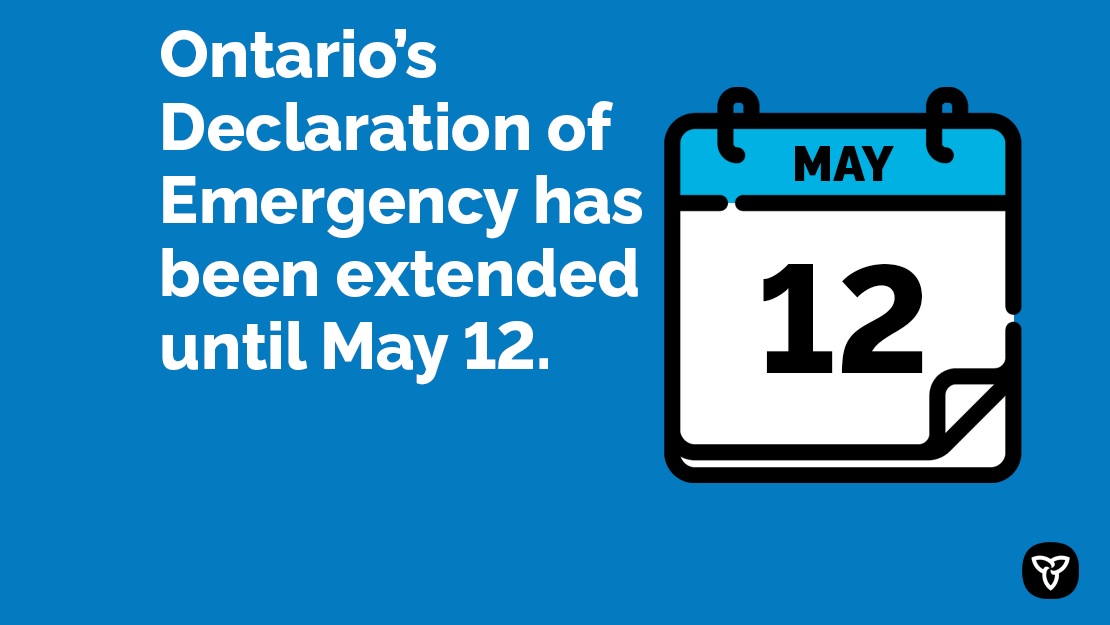Throughout the world people and their governments are making a myriad of decisions that are risking lives, risking freedoms, and risking livelihoods. To continue to take on the challenges of coronavirus, Ontario has extended its Declaration of Emergency to May 12.
First announced on March 17, these measures under the Emergency Management and Civil Protection Act, mean that non-essential workplaces will remain closed, gatherings will continue to be restricted to five people, price-gouging remains outlawed, and restaurants will be limited to takeout. Students will not be going back to school May 4 and there is no set date for their return.
The legislation also permits Haldimand, Norfolk and all municipalities to extend their own state of emergency – with measures sometimes at odds with the province, and also with varying levels of support. Canada’s proposal to bring in sweeping powers to deal with Covid-19 under the Emergencies Act has been opposed by most of the provinces, including Ontario.
During these times, all levels of government justify restrictions to offer support and every power possible — and justifiably so – to help our health sector fight the spread of corona virus. People understand this disease constitutes a danger of major proportions. However more recently our office is fielding complaints of too many rules lacking common sense, and clarity, and by extension effectiveness. Ultimately deterrents don’t work if people have reason to defy.
There is confusion.
For example, Ontario advises that green spaces in parks, trails, ravines, and conservation areas remain open for walk-through access. However, residents of certain municipalities, including Haldimand-Norfolk are not permitted to use or access any open space, including parks, trails, piers, beaches, community gardens, or other open spaces usually accessible to the public, whether publicly or privately owned. By no means is it time for us to get complacent, but if people perceive new rules to be contradictory, or unfair, or out of proportion to the necessity they are less inclined to comply.
The mandatory closure of non-essential workplaces continues to at least May 12, with the extension of the state of emergency.
As the situation evolves, Premier Ford has been clear that every option is on the table. Businesses and individuals who want to get back to work are contacting my office and we advocate on their behalf with various ministries, and collaborate on suggested options to find a way forward to a healthy economy. We do need to find a path to future economic activity – to normalize, by way of thoughtful and reasonable direction based on analysis of the costs, the risks and the benefits.
While fighting a deadly enemy, we must also be planning for economic recovery – and to that end the Premier has appointed a team to develop a plan for post-pandemic growth and prosperity.

This new Ontario Jobs and Recovery Committee will focus on getting businesses up and running and getting people back to work. Since January 25 – when I first communicated concerns about coronavirus – my office and I have witnessed the mounting concern and anxiety about this deadly disease. We are now seeing mounting concern, frustration and anger with respect to restrictions and perception of authoritarian overreach – the perception of threats to freedom and threats to making a living. We must find a way forward and I welcome your input. For the Silo, Toby Barrett MPP for Haldimand-Norfolk.


Leave a Reply
You must be logged in to post a comment.